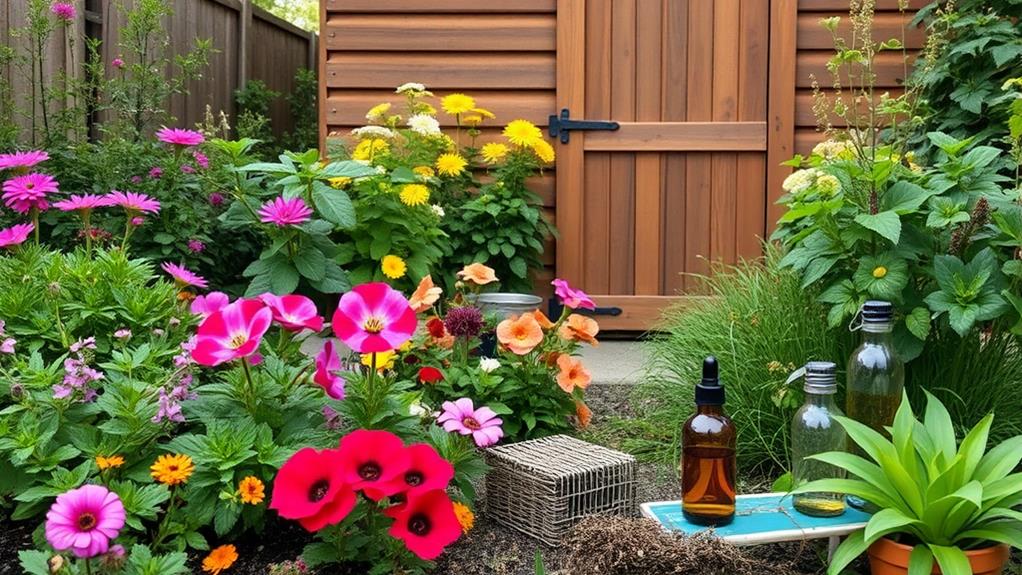You might not realize it, but your beautiful garden can quickly become a haven for rats if you're not careful. Understanding rat behavior is essential, as it helps you identify signs of infestation before it spirals out of control. By implementing natural deterrents and maintaining a clean space, you can effectively keep these pests at bay. However, knowing what specific strategies to use can make all the difference. What simple yet effective methods could transform your garden into a rat-free sanctuary?
Understanding Rat Behavior
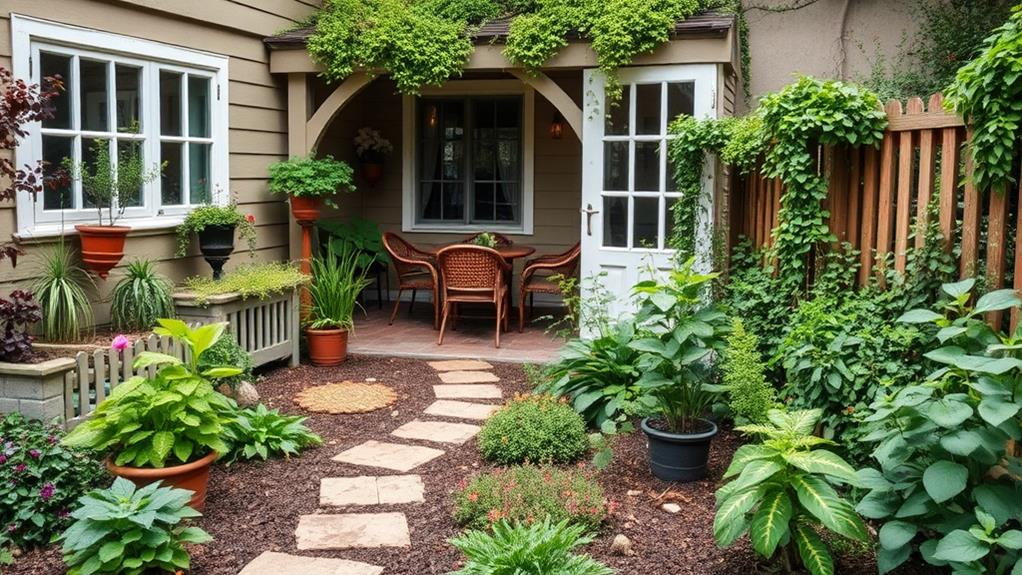
Understanding rat behavior is essential for effective control in your garden home. Rats are clever little creatures, and they tend to be sneaky, too. They love to explore their surroundings, looking for food, water, and cozy nesting spots. If you want to keep them at bay, it helps to know what makes them tick.
Rats are nocturnal, which means they're most active at night. So, if you hear strange noises after dark, it might be them munching on your garden goodies! They're also social animals, often living in groups, so you could be dealing with more than one rat at a time.
These furry bandits are great climbers and can squeeze through tiny spaces, so it's crucial to seal any gaps in your home. They're also attracted to clutter, so keeping your garden tidy can help deter them.
Signs of Rat Infestation
If you suspect rats are invading your garden home, there are several telltale signs to watch for.
First, listen for those nighttime noises—scratching, scurrying, or even little squeaks. If you hear a furry party happening when the sun goes down, it's time to investigate!
Next, keep an eye out for droppings. Rat droppings are small, dark, and about the size of a raisin. You might find them near food sources or along walls.
Look for gnaw marks, too. Rats love to nibble on wood, wires, and even plastic. If you see some suspicious-looking chew marks, you may have some uninvited guests.
Nests are another clue. If you spot shredded paper, fabric, or dried plant materials, it could mean a rat's made itself at home.
Lastly, check for tracks or trails. Rats often leave footprints or greasy smudges along walls where they travel.
Just remember, if you see any of these signs, it's time to take action. After all, you want your garden home to be a sanctuary, not a rat's playground!
Natural Deterrents for Rats
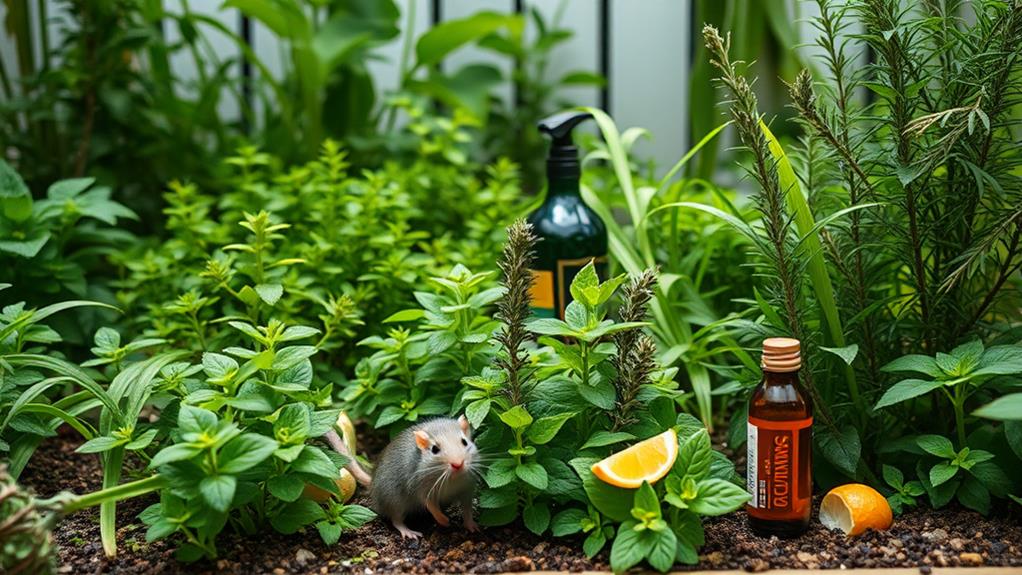
Once you've identified signs of a rat infestation, it's time to explore ways to keep these pests at bay using natural deterrents. You don't want to share your garden with uninvited guests, right?
Start with peppermint oil. Rats dislike the strong scent, so soak some cotton balls in it and place them around your garden. Just think of it as giving your garden a minty fresh makeover!
Another great option is cayenne pepper. Sprinkle it around entry points or areas where you've spotted rats. They'll think twice about hanging out when their noses get a spicy surprise.
Also, consider using vinegar. Mix equal parts water and vinegar in a spray bottle and apply it to surfaces where rats might wander. The smell can really help keep them away!
You can even plant strong-smelling herbs like lavender, rosemary, or sage. Not only will they smell lovely, but they'll act as a natural barrier against those pesky critters.
DIY Traps and Baits
Set up effective DIY traps and baits to tackle your rat problem head-on. You don't need fancy gadgets to catch these sneaky critters. A simple bucket trap can work wonders. Just take a bucket, fill it with a little water, and place a wooden plank leading up to the rim.
Spread some peanut butter on the plank, and watch as those furry friends make their way for a swim—without a life jacket!
If you prefer using bait, think about natural options. Mix together a little peanut butter with some crushed garlic, and smear that on cardboard or a small plate. Rats love it, and it's a lot safer than chemical poisons.
Just place your bait in areas where you've noticed rat activity.
Another idea is to use a simple box trap. You can find instructions online to make one from a shoebox.
Remember, it's important to check your traps daily. You wouldn't want any little guy stuck there longer than necessary.
With these DIY traps and baits, you'll be well on your way to reclaiming your garden sanctuary from those pesky rats! Happy trapping!
Maintaining a Clean Garden
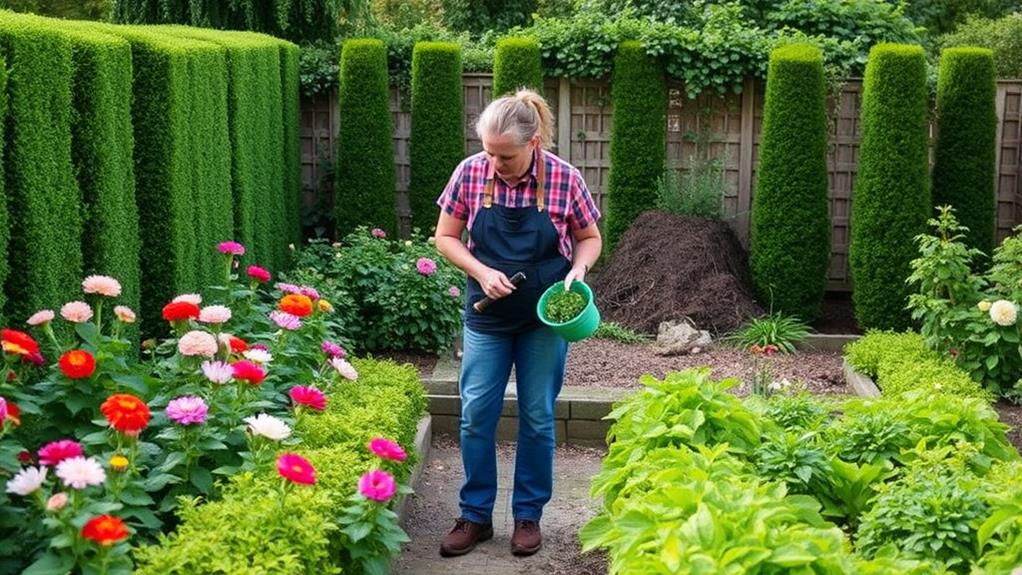
Regularly maintaining a clean garden is essential for keeping rats at bay. When your garden's messy, it becomes a perfect home for these critters. So, what can you do? Start by picking up fallen fruits, veggies, and any other food scraps that might attract them. It might feel like you're on a never-ending scavenger hunt, but your garden will thank you!
Next, keep your compost piles tidy. If they're too messy, they can become a buffet for rats. Make sure to cover your compost with a lid or use a bin designed to keep pests out.
Also, don't forget to trim back overgrown plants and bushes. Think of it as giving your garden a haircut—neat and tidy is the goal!
Lastly, store your gardening tools and supplies properly. Leaving bags of soil or seeds lying around is like rolling out the welcome mat for rats. They love to hide in dark, cluttered spaces, so keeping things organized is key.
Planting Rat-Repellent Herbs
A tidy garden not only looks great but also sets the stage for you to plant herbs that can naturally repel rats. You mightn't know it, but certain herbs are like a "no rats allowed" sign in your garden.
For instance, mint is a fantastic choice! Rats can't stand its strong scent, so planting some mint can help keep them away. Just be careful; mint can take over if you're not watching!
Another great option is lavender. Not only does it smell lovely, but it also has a reputation for keeping those pesky rodents at bay. Plus, you can use lavender in your home for a calming aroma.
Rosemary is another herb that rats dislike. It's a hardy plant, so it thrives in most gardens. You can even use it in your cooking, making it a win-win!
Lastly, consider planting sage. Its strong aroma can make your garden less inviting for rats.
Creating Physical Barriers
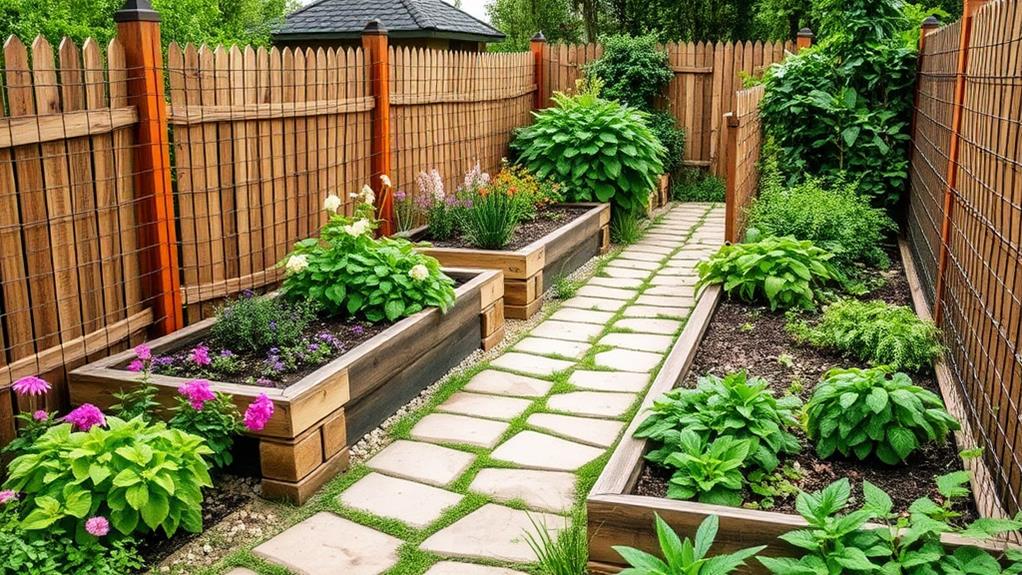
One effective way to keep rats out of your garden is by creating physical barriers. Think of these barriers as your garden's bodyguards, standing watch and keeping unwanted guests away.
You can start by building a sturdy fence around your garden. Make sure it's at least two feet high and buried a foot underground. This way, rats can't dig their way in like sneaky little ninjas!
You can also use wire mesh or hardware cloth. Just cut it into sections and staple it to the bottom of your fence. This adds an extra layer of protection, making it even harder for those pesky critters to invade.
If you've got raised garden beds, consider lining the bottom with mesh too.
Another fun idea is to create barriers with plants! Dense shrubs or prickly plants can deter rats while adding beauty to your space.
Just remember, when you create these barriers, you're not only protecting your veggies but also giving rats a hint that your garden isn't the place to be.
Monitoring and Prevention Strategies
To effectively keep rats at bay, monitoring your garden regularly is essential.
You'll want to inspect areas where plants grow, as well as any hidden nooks and crannies. Look for droppings, holes, or any signs of rat activity. Trust me, finding a little evidence early can save you a big headache later on!
Next, consider setting up a few traps in strategic spots. You don't have to go all-out, just a couple of well-placed traps can help catch any sneaky visitors.
Remember to check these traps often—rats are quick, and you don't want them to outsmart you!
Another smart strategy is to keep food sources sealed tightly. If you're composting, make sure it's secured.
The less food you offer, the less chance you'll attract rats. Also, clear away debris and clutter. Rats love hiding in tall grass or old piles of junk, so a tidy garden is a happy garden.
